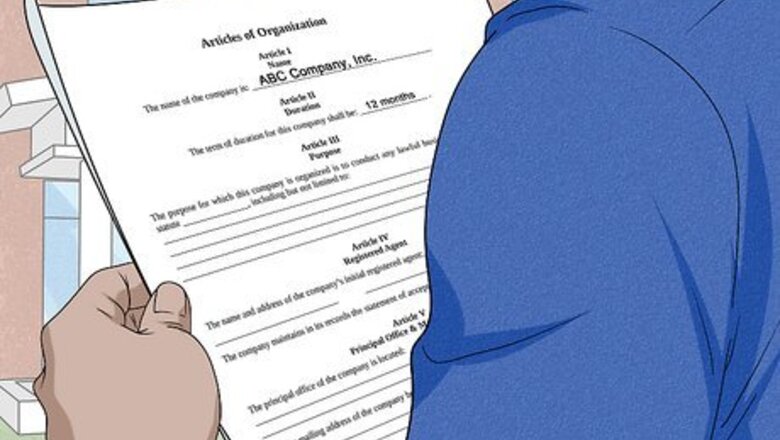
views
Preparing to Apply
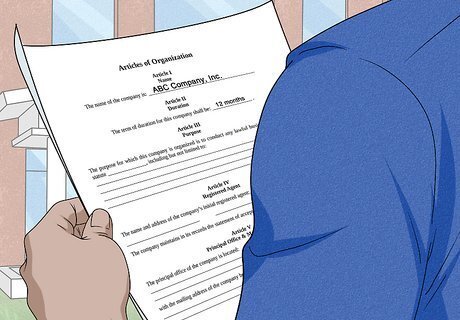
File for your Statement of Information and Articles of Incorporation or Articles of Organization. If your company is classified as either a Limited Liability Company (LLC) or Corporation, you will need to file with the California Secretary of State's office to receive a Statement of Information and Articles of Incorporation (Corp) or Articles of Organization (LLC). These documents will be required in your TCP application process. The fees for the Statement of Information and Articles of Incorporation equal 125 dollars. The fee for the Articles of Organization is 70 dollars.
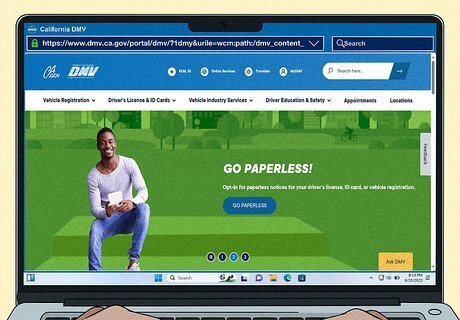
Apply to the DMV's Employer Pull Notice Unit for a requester code. Go to https://www.dmv.ca.gov/portal/dmv/?1dmy&urile=wcm:path:/dmv_content_ to access the application forms for an EPN requester code. The requester code is added to the driver’s licenses of your employees and allows you to monitor their driving records. Your requester code will be required in your TCP application packet. It can take up to 6 weeks to receive your requester code.
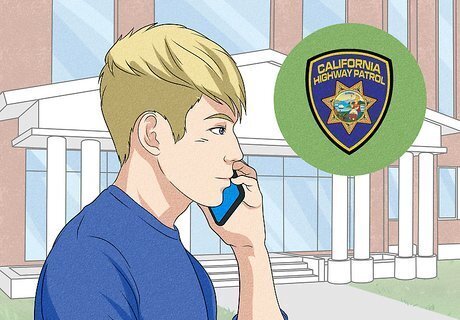
Apply to the CHP for a California Carrier Identification Number (CA#). This step is only required if you plan on operating vehicles that seat 11 passengers or more. Contact the California Highway Patrol to schedule an inspection. After the inspection, you will be given a CA#. CHP inspection fees are approximately 15 dollars per vehicle.
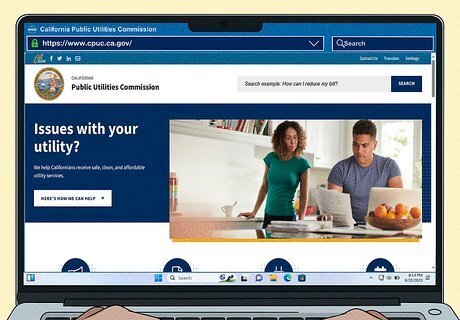
Shop for insurance and compare costs. You will not be able to finalize your insurance until you are given a TCP number. However, it is important to be prepared for the cost of insurance as it can have a substantial impact on your business plan. Find suitable insurers through the CPUC website. Insurance tends to cost significantly more if you seek a TCP permit without a vehicle, as opposed to including your vehicle information with your application. You are required to carry public liability and property damage insurance. For more information about the insurance requirements, go to the CPUC website. If you have employees, you must also have workers’ compensation insurance on file with the CPUC.
Applying for Your TCP
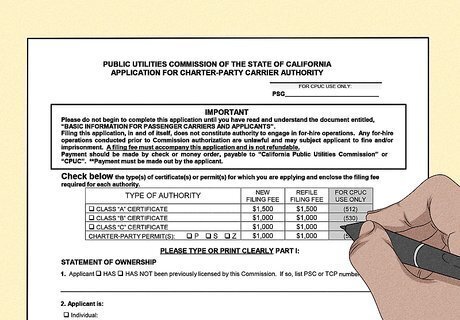
Fill out a Charter-Party Carrier of Passengers application packet. Go to the CPUC website and print the application packet. Use the checklist provided to make sure you include everything required. This will include the nonrefundable application fee of 1000 dollars. Your application will be reviewed within two weeks of being received. If your application is missing any required forms, you will receive a deficiency letter in the mail. Check your mail thoroughly to make sure you don’t miss this letter. Submitting an application and getting a file number does not give you authority to operate. Only active authority allows you to operate. Don’t submit an application until you are committed to meeting all requirements and able to begin operation within 3 months. If you apply for an "A" certificate, which allows you to operate round-trip sightseeing tours and charge individual fares while doing so, your application fee will increase to 1500 dollars.
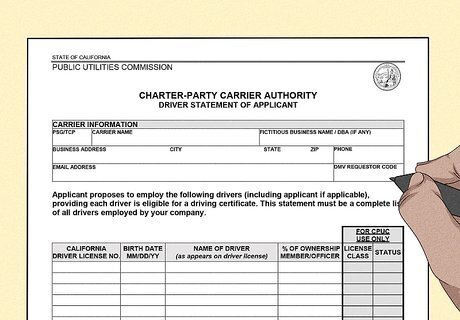
Provide the License Section with insurance and vehicle information. The License Section of the CPUC will require insurance information and the vin number and vehicle registration for each vehicle in your fleet. Once you have turned in your TCP application packet and have been assigned a number, you can finalize your insurance.
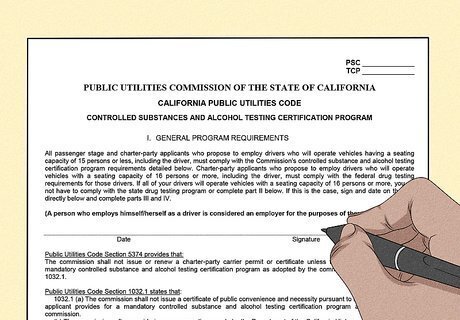
Enroll in a Controlled Substance and Alcohol Testing Program (CSAT). If you operate chartered vehicles that can carry more than 16 people, you are required to establish a drug testing program that includes a test before a driver can be hired, and random testing while employed. This program is overseen by the CHP, but is compliant with mandates from the Federal Motor Carrier Safety Administration (FMCSA). Substances that are tested for include: marijuana metabolites, cocaine metabolites, amphetamines, opiate metabolites, and phencyclidine (commonly referred to as PCP). Consult the list of drug and alcohol testing consultants provided on the CPUC website.

Contact the Ground Transportation Unit of all airports on your route. Each airport has its own requirements regarding licensing. To obtain a permit from Los Angeles World Airports (LAWA), for example, you are required to submit 7 documents, 1 of which is your TCP. The application fee for LAWA is 150 dollars annually.
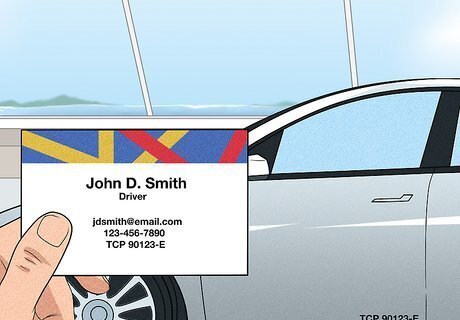
Display your TCP numbers. Once you have been granted active authority on your TCP permit, make sure the number is displayed on business cards, in all of your company’s advertising, and on each of the vehicles in your fleet.











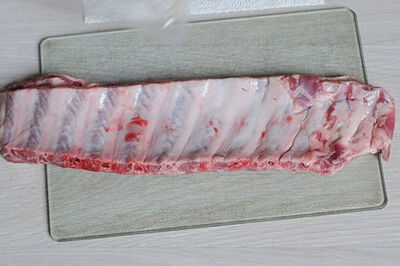
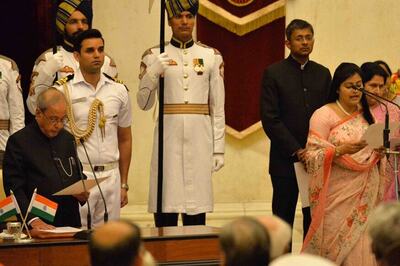



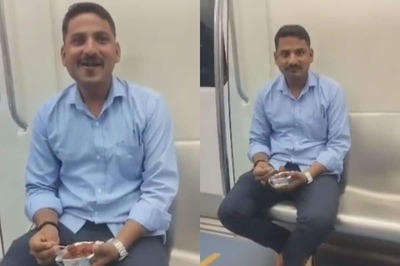
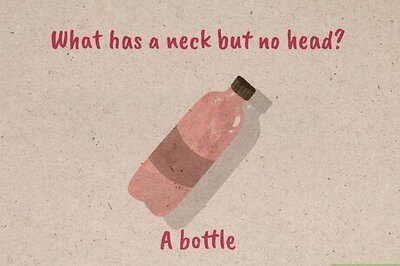

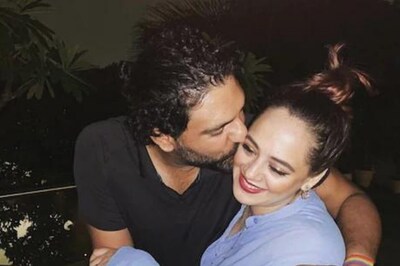
Comments
0 comment